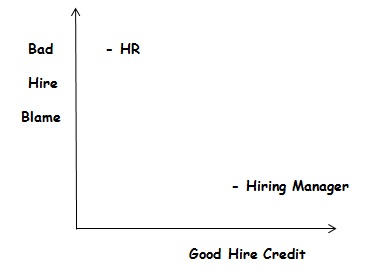We all think it, don’t we? We all want to believe in this notion that we only hire the best and brightest – we only hire quality. We are ‘highly’ selective.
We’ll show our executives really cool data that shows how ‘highly’ selective we are. Number of applicants per hire – 25,000 people applied for this position and we only took the best 1!
I read something interesting recently from Time magazine and college admissions at highly selective colleges – think Harvard, Yale, MIT, etc. Schools that are super hard to get into because of how selective they are – much like your hiring process of your organization. From the Time’s article:
“What many parents and students don’t realize is that increasing numbers of applications isn’t necessarily a sign that it’s harder to get into a selective school; rather, it’s a sign of changes in behavior among high school seniors. More and more people who aren’t necessarily qualified are applying to top schools, inflating the application numbers while not seriously impacting admissions. In fact, it has arguably become easier to get into a selective school, though it may be harder to get into a particular selective school…
The most recent study available from the National Association for College Admission Counseling shows that between 2010 and 2011 (the most recent years available), the percentage of students applying to at least three colleges rose from 77% to 79% and the percentage of students applying to at least seven colleges rose from 25% to 29%. In 2000, only 67% of students applied to three or more colleges, while 12% applied to seven or more.
The net effect of this behavior is to create an illusion of increased selectivity. Especially at the most selective schools, an increase in applications generally leads to the acceptance of a smaller percentage of the students who apply. However, students who meet the academic and extracurricular thresholds to qualify for competitive schools will still get into a selective college; it’s just less likely that they’ll get into a specific competitive college. These schools work hard to not admit students who won’t attend; the acceptance rate and the matriculation rate (the percentage of accepted students who attend) are key measures in many college ranking methodologies, so both admitting too many students and admitting students who don’t attend can hurt a college’s ranking.”
An illusion of increased selectivity…You see, just because you turn down a high number of candidates doesn’t make you more selective – it makes you popular. Too many organizations, and HR departments, are marketing that they are highly selective based on some simple numbers that give an illusion of being highly selective, when in reality, they’re just good at processing a high number of applicants – but not really being ‘more’ selective. Just because you turn down 24,999 candidates doesn’t make you selective – it just means you have a high number of applicants.

